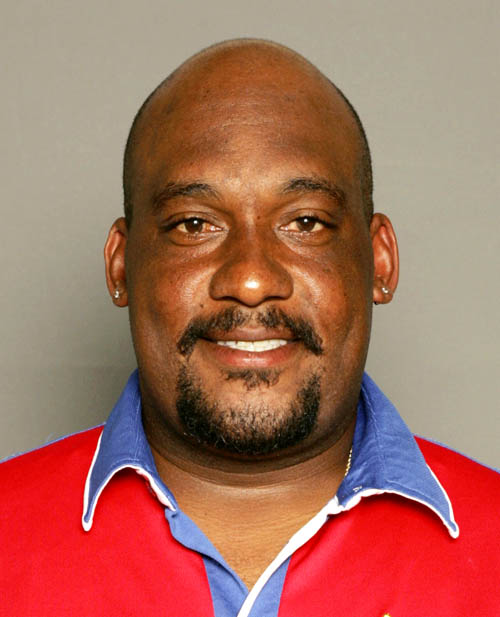
Ashes backyard cricket
Originally uploaded by westius.
Here is our science survival guide to the Ashes:
- Ashes success and El Nino
- How to rank cricketers
- Science, Psychology and Cricket
- The curse of the duck
- Science, Cricket, Fitness and Psychology
- Sex before Sport?
- Economists, oil, cricket and correlation
Is the winner of The Ashes already pre-determined? Manoj Joshi has shown that the El Nino Southern Oscillation (ENSO) phenomenon has a significant effect on the results of The Ashes cricket series when the series is held in Australia. The Australian Cricket team is more likely to succeed after El Nino years, while the English cricket team does better following La Nina years (the opposite phase). Their study, Could El Niño Southern Oscillation affect the results of the Ashes series in Australia? was published in the journal Weather.
Cricket is one of the world's most statistical sports, and mathematicians in cricket-loving nations love nothing more than delving into the minutiae of the numbers and diving into averages, strike-rates and custom-made measures of batting and bowling effectiveness.
For many people, including me, cricket isn't just a sport, it is a way of life.
These words could easily have come from me, but are actually the words of Rob Eastaway, a cricket-loving mathematician from the UK, and originator of the official International Cricket Council cricket-ratings which rank not only teams, but players within each team. In this podcast, I chat to Rob about how you mathematically rank cricketers.
Every cricket season, the TV coverage of cricket becomes more spectacular and technological, with the introduction of microphones to detect the finest of edges through to the keeper, improved abilities to determine the trajectory of a ball once it has left the bowler’s hand, and now even heat sensors to see how the batsman sweats.
But the scientific aspects of cricket are not limited to TV companies, with science playing an increasing role in shaping the performance of players, from their general fitness to specific training techniques for both their physical, and possibly more importantly mental, well-being. It is with science that countries are aiming to find the competitive edge.
The recent news of the great Indian batsman Sachin Tendulkar surpassing West Indian Brian Lara's record number of test runs has given maths-loving cricket geeks another opportunity to pull out their calculators and Excel spreadsheets. At the time of writing, Tendulkar had scored 12,027 runs across 247 innings, to overtake Lara's 11,953 from 232 innings. After a little investigation, I found that despite his outstanding average of over 54 runs per innings, Tendulkar's most common score in test cricket is ... zero! Even the great Don Bradman scored a duck more times than any other score. And their next most common? One! We look at how are cricket scores are distributed.
Do you need to be fit to play cricket? Do the best batsmen in the world really have the ability to predict the type of ball they will receive before it even arrives? And is cricket really more of a mental game than a physical one?
In this podcast episode, we talk to Dr Rob Duffield from the School of Human Movement at Charles Sturt University who has found that indeed you really do not need to be as physically fit to play cricket as you do other sports such as football. We also chat to Dr Allistair McRobert from Liverpool John Moores University whose work has shown that the best batsmen can predict to some extent where a bowler will bowl. This work encompasses a look into the subconscious mental game of cricket and how the most successful players are more mentally prepared for the top level than lesser players. More on this topic can also be found in our article The Science of Cricket.
It is the virile sports-person's eternal question - should one abstain from a little bit of nookie before a big sporting event? If I was Michael Clarke and engaged to Lara Bingle, I wouldn't be...
Can we predict cricket results using the price of oil? Or is this just bad stats. Also see our article Poor correlations, or why it's not the fault of Aussie cricketers.
Good luck to all and come on you Aussies!



3 comments:
Live Cricket Streaming, Star Sports Live
Live Cricket Streaming, Star Sports Live
Live Cricket Streaming, Star Sports Live
Live Cricket Streaming, Star Sports Live
Live Cricket Streaming, Star Sports Live
Live Cricket Streaming, Star Sports Live
Live Cricket Streaming, Star Sports Live
Live Cricket Streaming, Star Sports Live
Live Cricket Streaming, Star Sports Live
nice blog. you can get all this service:
Floor sanding and polishing service
Epoxy floor coating
Concrete coatings
Concrete polishing
Concrete floor coatings
Industrial floor coatings
Concrete epoxy coating
Contact link :
Uv curable coatings Las Vegas, henderson and North Las Vegas areas
Uv coated flooring Las Vegas, henderson and North Las Vegas areas
Post a Comment